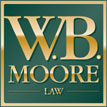
When we think about where our assets should go after we pass, many of us focus first on family: spouses, children, and sometimes extended relatives. But what if your primary wish is to support a cause you care about? Can a charity be named instead? The short answer is yes, and it’s more common than many people realize. Including a charitable organization in your estate plan is a valid and often meaningful choice, whether you’re looking to give back, make a lasting impact, or simply have no close family ties to consider.
You Can Choose A Charity Over Other Heirs
You are legally allowed to name a charity as a beneficiary in your will, retirement account, or life insurance policy. In fact, you can do this to the exclusion of other potential heirs: children, siblings, or other relatives. The only person who generally has legal protections in this situation is a spouse. In most states, including Colorado, a surviving spouse is entitled to what’s known as a spousal elective share. This means even if a will tries to bypass them entirely, they can still claim a portion of the estate. Outside of that, however, you can direct your estate wherever you see fit.
If your spouse has already passed, and your children have also passed without leaving descendants, there is nothing preventing you from choosing a charity as the sole recipient of your remaining assets. In many cases, we’ve seen clients use this approach as a thoughtful and impactful way to direct their legacy. One common plan looks like this: everything goes to a spouse first, then to children if the spouse has already died, and finally to a charity if no children or other descendants survive. This acts as a practical fallback and ensures that the estate benefits a meaningful cause.
Additional Options For Supporting Charities
Naming a charity as a beneficiary in your will is only one method. If charitable giving is a primary goal, there are other tools worth considering. For example, there are a couple of trust structures designed specifically for this purpose, such as charitable remainder trusts or charitable lead trusts. These can provide tax benefits while also allowing for more control over how and when the charity receives funds. Setting up these kinds of trusts does require more detailed planning and is best done with the help of a qualified attorney during a one-on-one consultation.
Additionally, retirement accounts like IRAs and 401(k)s can be directly designated to a nonprofit organization. This can be a tax-efficient way to give, as charities are not required to pay income taxes on these types of gifts. Life insurance policies can also name a charity as the primary or contingent beneficiary, giving your estate planning an added layer of intention and generosity.
Estate Planning Should Reflect Your Priorities
Your estate plan should reflect your personal goals and values. If charitable giving is part of your vision, it’s fully possible to structure your plan to meet that aim. While many people automatically assume that assets should pass to family, the law does not require this, except in the case of a spouse’s protected share. If you feel strongly about a specific cause or organization, such as a local animal shelter, educational foundation, or national nonprofit, we can help you make that a part of your legacy.
At W.B. Moore Law, we often work with clients who want their estate to benefit something greater than themselves. Whether you’re in the early stages of planning or revisiting an existing will, our team is here to guide you through options that align with your values and legal goals. As your Loveland, CO will lawyer with decades of experience in charitable estate planning, we offer the insight and structure to help make those gifts a reality.
Let’s Build Your Legacy With Purpose
Making a gift to charity through your estate is more than generous—it’s intentional. If you’re thinking about how best to direct your assets in a way that matches your priorities, let’s talk. Whether you want to provide for family, support a cause, or do both, we’re here to help you build a thoughtful plan. Contact us today to schedule a consultation and take the first step toward a legacy that truly reflects what matters most to you.
